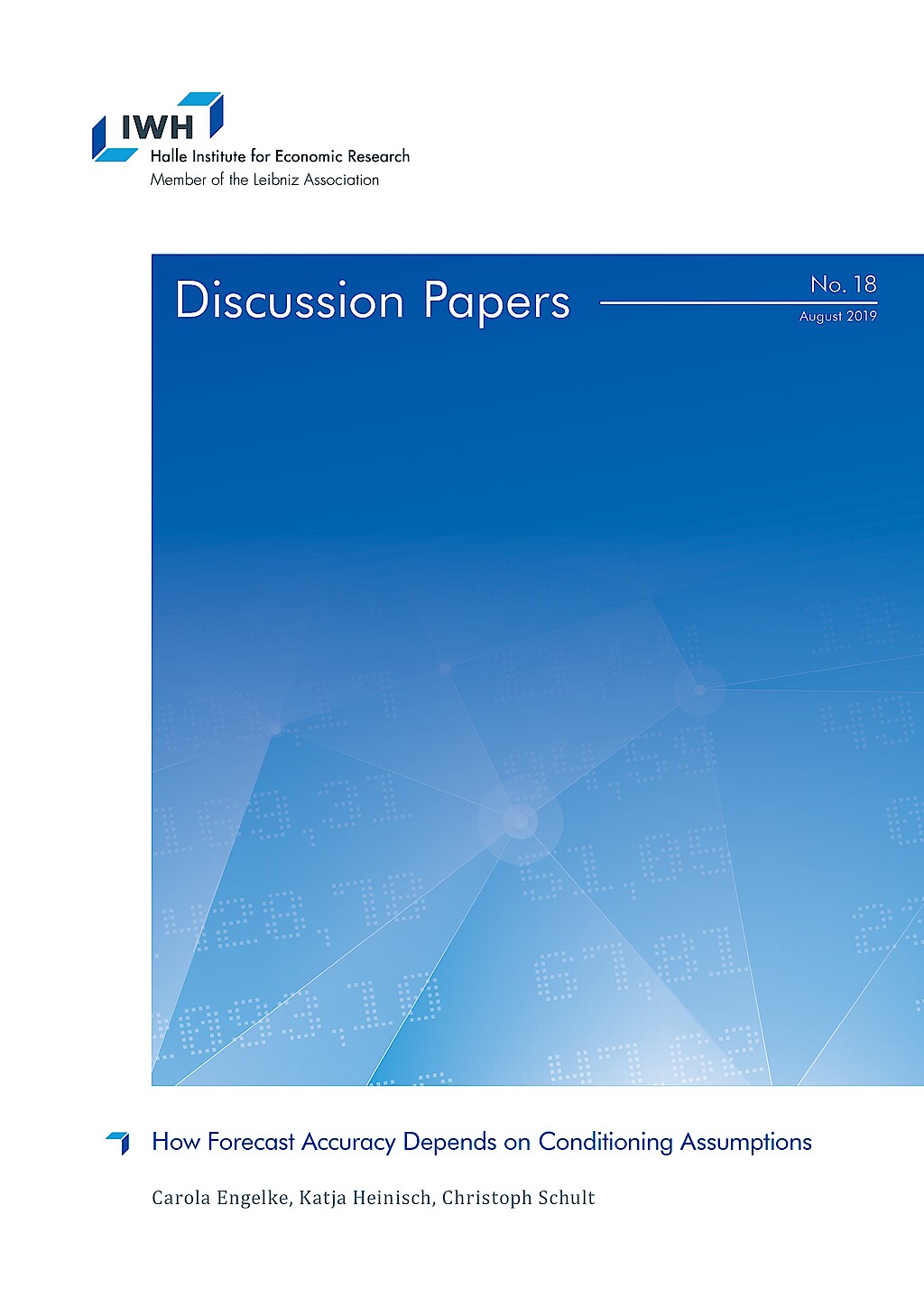
How Forecast Accuracy Depends on Conditioning Assumptions
This paper examines the extent to which errors in economic forecasts are driven by initial assumptions that prove to be incorrect ex post. Therefore, we construct a new data set comprising an unbalanced panel of annual forecasts from different institutions forecasting German GDP and the underlying assumptions. We explicitly control for different forecast horizons to proxy the information available at the release date. Over 75% of squared errors of the GDP forecast comove with the squared errors in their underlying assumptions. The root mean squared forecast error for GDP in our regression sample of 1.52% could be reduced to 1.13% by setting all assumption errors to zero. This implies that the accuracy of the assumptions is of great importance and that forecasters should reveal the framework of their assumptions in order to obtain useful policy recommendations based on economic forecasts.





